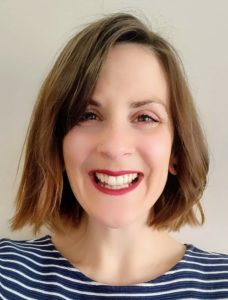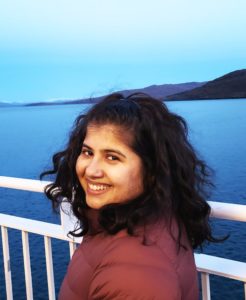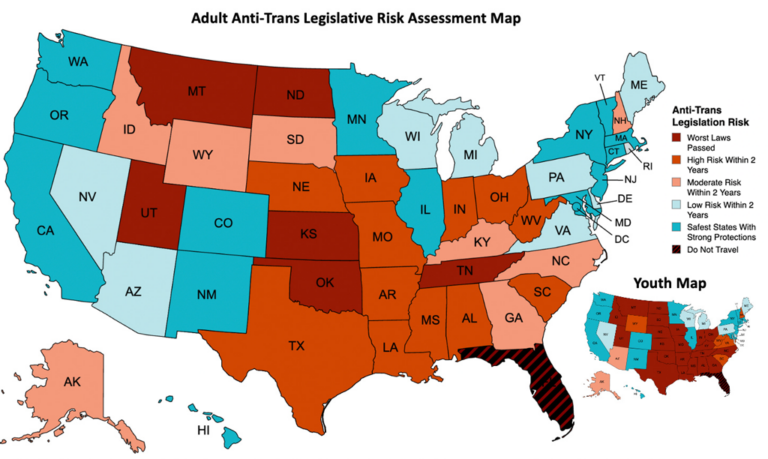A Space to Cultivate: An Interview with Debbie Hopkins and Neha Arora of the AAG Review of Books
In June 2020, Debbie Hopkins, Associate Professor in the Department for Continuing Education and the School of Geography and Environment, University of Oxford, took over as Editor-in-Chief of the AAG Review of Books, replacing Founding Editor Kent Mathewson. Published quarterly, The AAG Review of Books highlights recent texts in geography and related disciplines. The journal features book reviews by geographers and other scholars at various points of their academic careers.
We recently asked Debbie and Neha Arora, PhD Candidate in Human Geography, Stockholm University, and Editorial Assistant at The Review, to talk with us about their work this past year. This interview has been edited for clarity and brevity.

Q: What were you expecting from The AAG Review of Books, and what has surprised you?
Debbie: I find book reviews very interesting. As I expected, I have experienced the submissions as an art form, a particular form of writing that doesn’t have to be formulaic. Geographers tend to write more like humanists, a little poetic. Storytelling is something geographers do quite naturally, but we know we have to write a certain way to be published.
The Review allows you to have fun with yourself. That’s exciting for academics. You’re reviewing this book but how does it fit with the world?
Getting into it, I had very big shoes to fill. I was intimidated to meet Kent. He was very generous and supportive as I got going. Something that surprised me was the generosity with which reviewers engaged with the material. Reviewing is quite a selfless act. Particularly as I started this in the pandemic, dealing with that, taking classes online, homeschooling, dealing with personal tragedies. For people to say, yes I will do that. Across career stages, quite phenomenal. It’s no small feat, but people seem to get a lot out of it.

Neha: Absolutely everything has been a pleasant surprise! When I joined, I was expecting to be limited to an administrative role, especially since I did not have much experience in publishing. But Debbie encouraged me to be a part of the entire process, opening so many avenues to learn and grow. This has allowed me to expand networks, get a deeper look into the academic world as well as the publishing industry, read across disciplines and hone my editing and writing skills. Most exciting, however, has been trying to figure out new ways of broadening the scope of the journal. I never expected to be a part of these conversations. I was even surprised by how smoothly our little team works across continents, with Debbie in the UK, Jennifer in the US, and me first in South Africa and then in Sweden. I am also incredibly lucky to have these amazing women as my mentors.
Q: Talk to us a little about the three different review types that the Review publishes?
Debbie: The book review essay is our space to cultivate and have that additional benefit for the person reviewing, able to communicate more of their own perspective, ideas, and research. Also, it includes a variety of formats – often involving two or more books discussed in relation to one another. We like for reviewers to explore the relationships among texts, and sometimes bring in their teaching experiences or professional experiences. The book review is a standard review. That is the submission we see the most. Even this quite traditional form – one book, 1,500 words – can show a surprising variety. The forum tends to spring from an author-meets-critic type event at conferences. A group of reviewers interrogate the book, ask questions, challenge, and then the author responds, creating a nice dialogue.
Q: What are some changes and new approaches you’ve been trying out this past year?
Neha: Under Debbie’s guidance, we started this year with a very clear vision and focus – driving diversification and inclusion across the board. We looked at not only the kind of books we were sourcing, but also sourcing them from beyond ‘main’ publishers and Anglophone geography, as well as looking beyond just books and reviewing other media such as films, or complementing a book review by including content from a podcast. Equally important has been a focused effort to seek a diverse range of reviewers across multiple axes (ECRs, gender, geography). We are also keen on empowering reviewers to engage in new ways with the books, by encouraging creativity and flexibility with the format of the reviews.
This is of course work in progress and such an immense learning experience. I never wholly appreciated the challenges in achieving these extremely important – and timely – objectives, not only at the journal, but across academia. Something as simple as the accessibility of university websites beyond the Anglophone world makes it very challenging to reach out to new potential reviewers. Even the more popular universities do not have pages for their PhD students or ECRs. Similar issues exist with geography associations elsewhere and smaller publishing houses. It’s understandable that they do not have the resources to expand their online presence. And it just means we need to find other ways, and change will happen more slowly.
Debbie: Right now, we are reliant on what comes to us, but we need to go beyond the languages that Neha and I can engage with. If there is a review you’d like to write because you think an English-speaking audience would be interested, we want to know. We will remain an English-speaking journal, but need to enter into a dialogue.
We also want to reach beyond books and review other media – I think it is important that we engage with those. Books will remain very important for our discipline. Most recently we had a forum for a documentary. I can see how it will be very important teaching material, as well.
We did a review of a book about a British TV show – Landscapes of Detectorists, which offered interesting commentary on citizen science and the public reach. It’s important that our reviews think about the power of the spoken word, as well as written.
Neha: I have to say here that it is so incredibly exciting to work with Debbie on this – she is always in favor of pushing boundaries, is always open to discussing new ideas and constantly encourages curiosity. She is providing me with a roadmap to be the kind of academic I hope to be.
Q: Can you talk a little about the freedoms and possibilities for an author writing for the Review?
Debbie: It would be interesting to have some conversations about certain kinds of books that are both good for interest in geography and perhaps less valuable for the actual discipline. People who work in policy don’t read what we think is policy. Some of the issue is managing that, finding it. I’d love for geographers to all have a conversation that brings people together. An advantage to the Review of Books is that it’s not peer-reviewed. Reviews can get published relatively quickly. We can be quite topical. It’s only a few months to publication, which is really quite unusual for academic publishing! We are never going to be an empirical research journal.
We want The Review of Books to welcome young geographers [as reviewers and as part of the] network, part of dialogue. Some of the great relationships I’ve had are because I’ve written with people, been part of community. We are interested in getting to know people who are interested in ideas and contributing to the community in some way.
I envision the Review as a space to be working through ideas and concepts. A place where a reviewer has the freedom to speak. The articles are all free access after a year, and two articles per issue are open access right away.
Q: What is the “spark” you are looking for, either in a book, or in a writer, or both (in a submission)?
Neha: There is such a diversity in the reviews that we get and publish that it is hard to pinpoint one characteristic. But the reviews that I enjoy reading the most are the ones with a personal story. The reviews that go beyond describing the strengths and flaws of the book but describe how the reviewer connected with the book as a reader. This could be through an overlap with their own work, or how it brought back a memory from the field, or just an emotional response.
Debbie: Representing the diversity of the discipline is so important to me. So something I haven’t seen before, a book, author, a fresh take, someone who wants to review and speaks with passion. It’s finding that match…. Something that comes together and shows the really cool work geographers do. That real-worldness of our work. Geographers are interested in changing the world. When we see these reviews and this academic work being tied to tangible world events, that’s really special.
Q: How can someone submit their work?
Debbie: I’m very open to just an email. We are preparing a new submission page for later this year or early in 2022. Our current page on the AAG website has information and guidance on submitting.
Often the best reviews are the ones where the reviewer approaches us. Review essays are more difficult for us to solicit. It has to be a passion, so we have to rely on people to approach us, often because of a contemporary trigger (e.g., protest). Forums are very much the same.
For more information on submitting to the AAG Review of Books, see our page for the journal.


